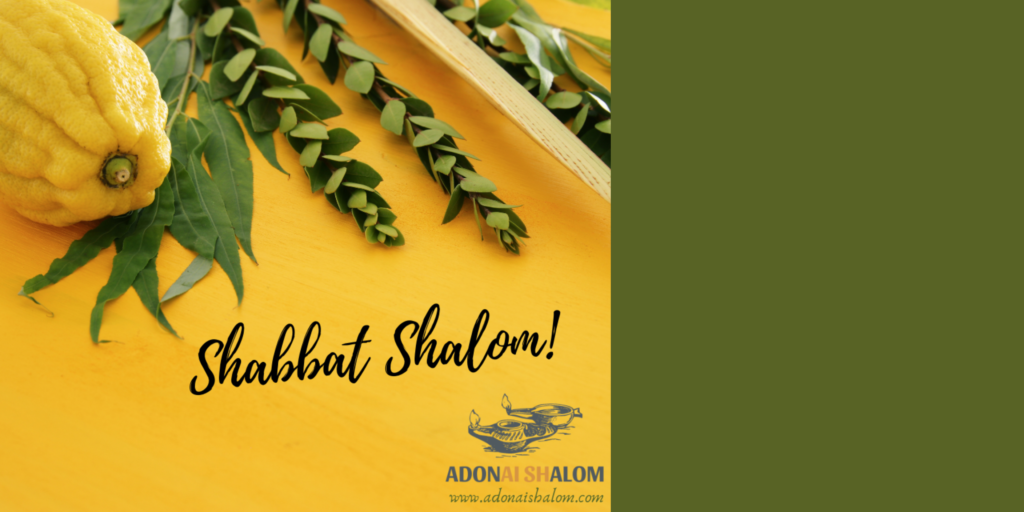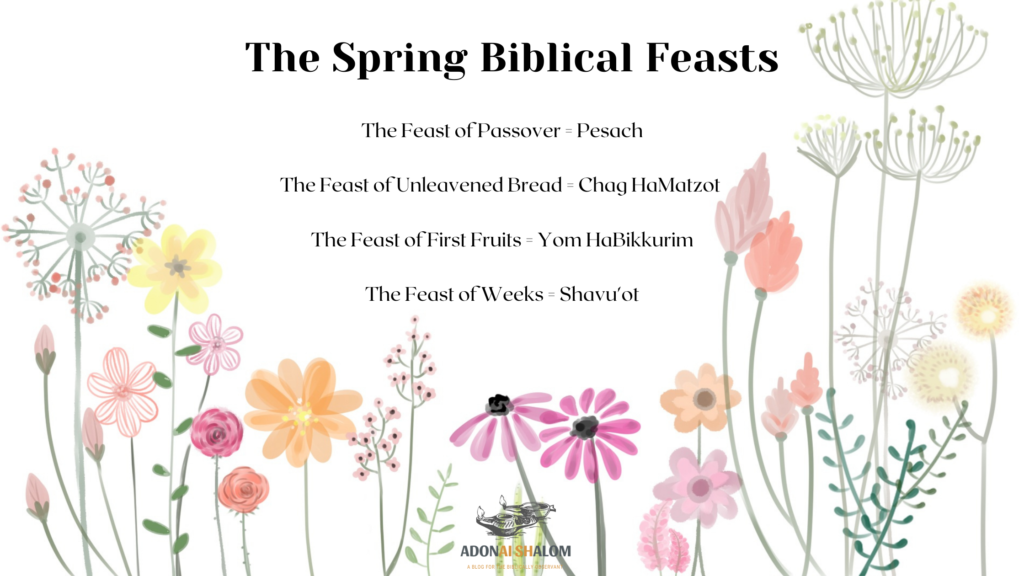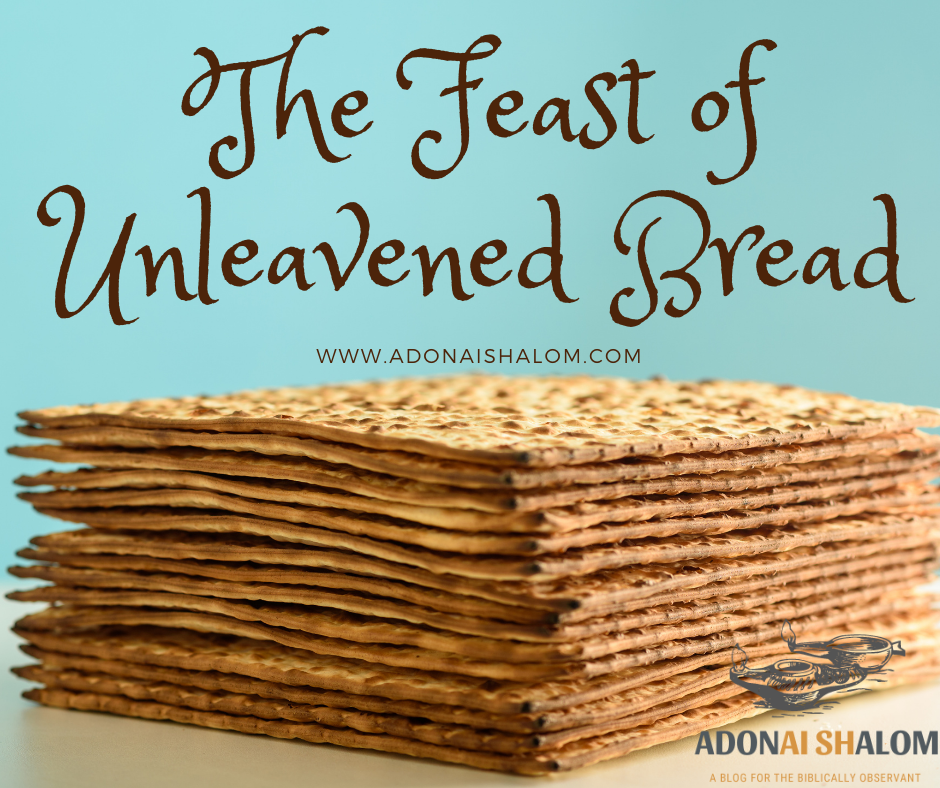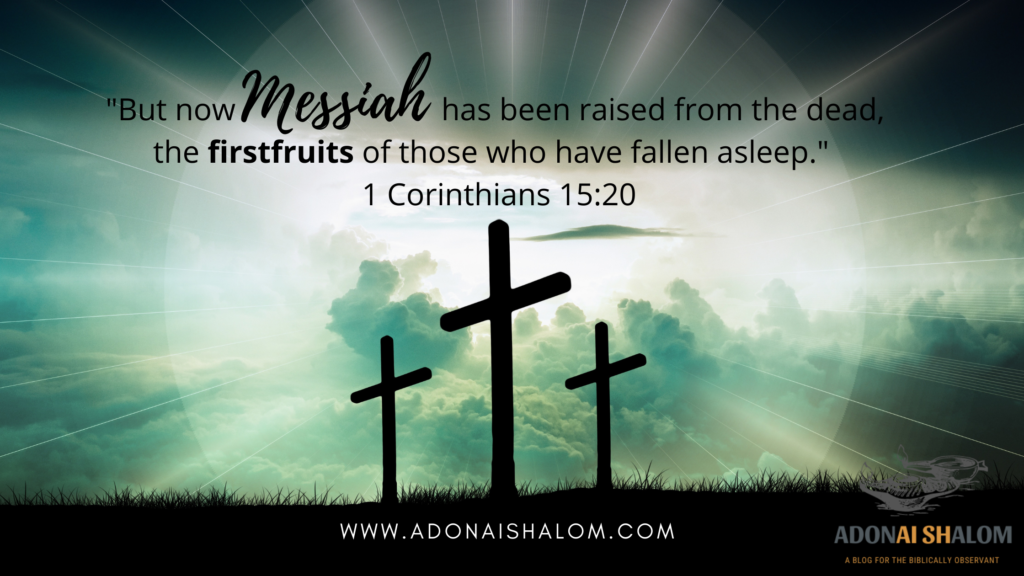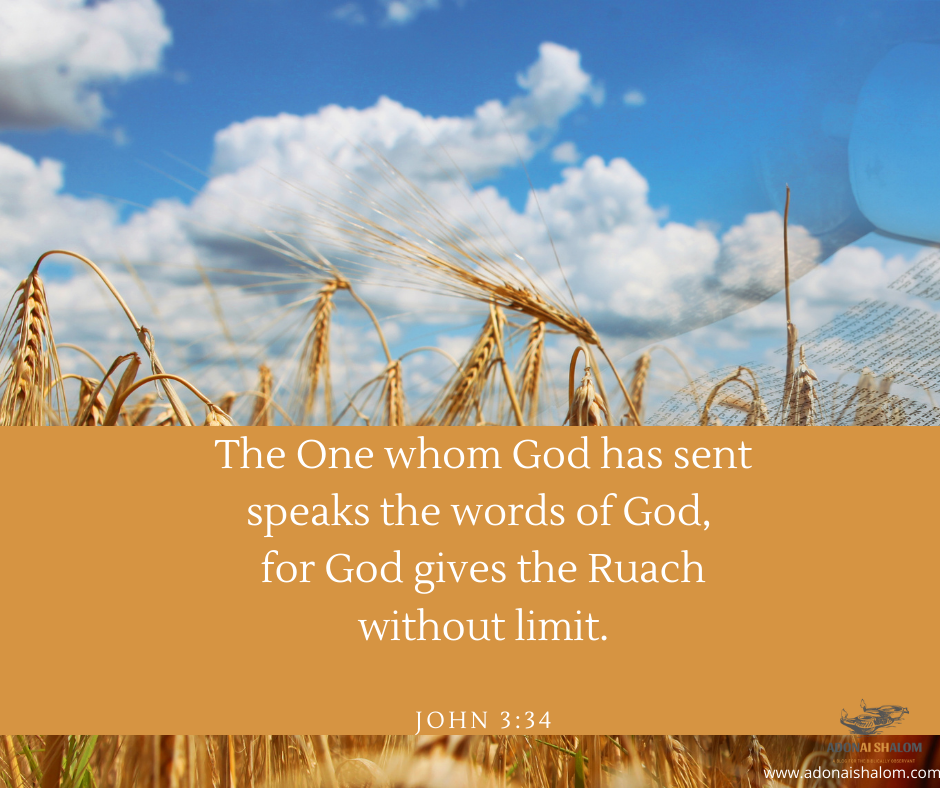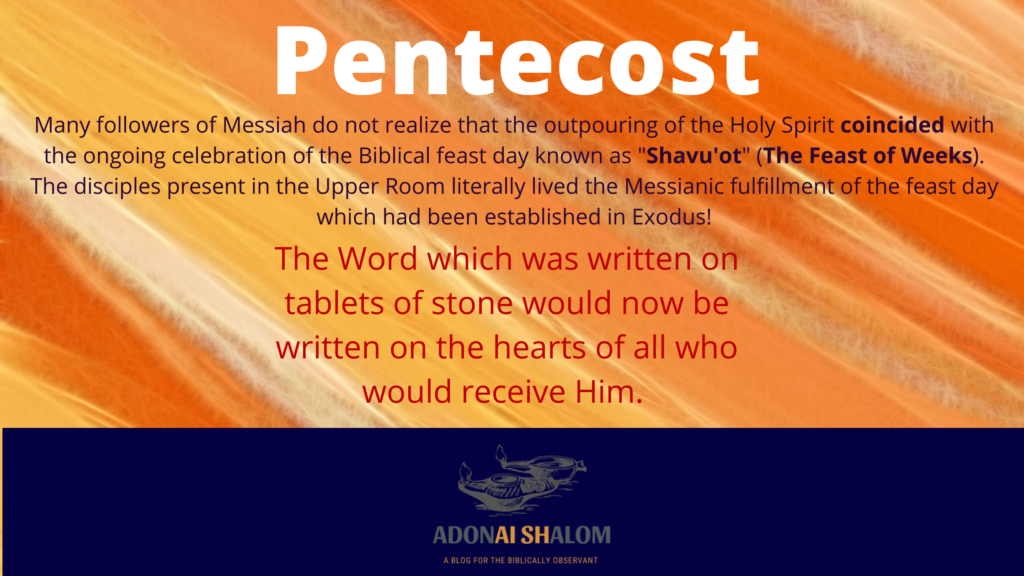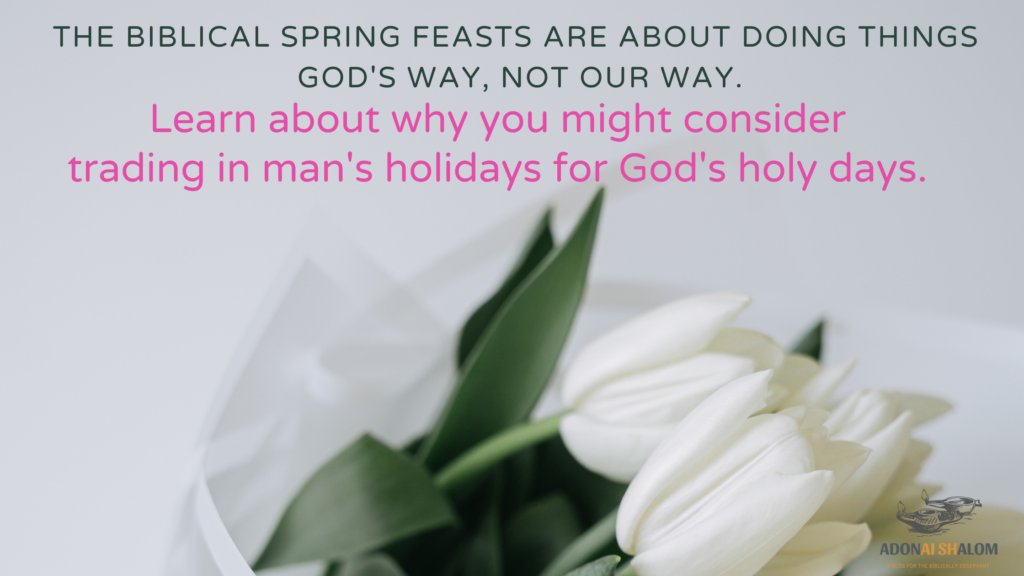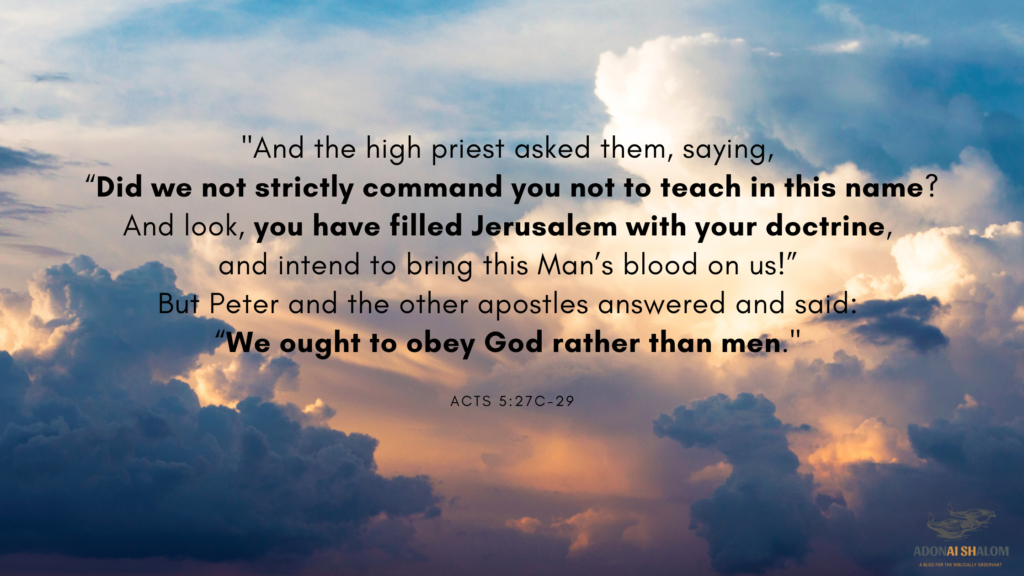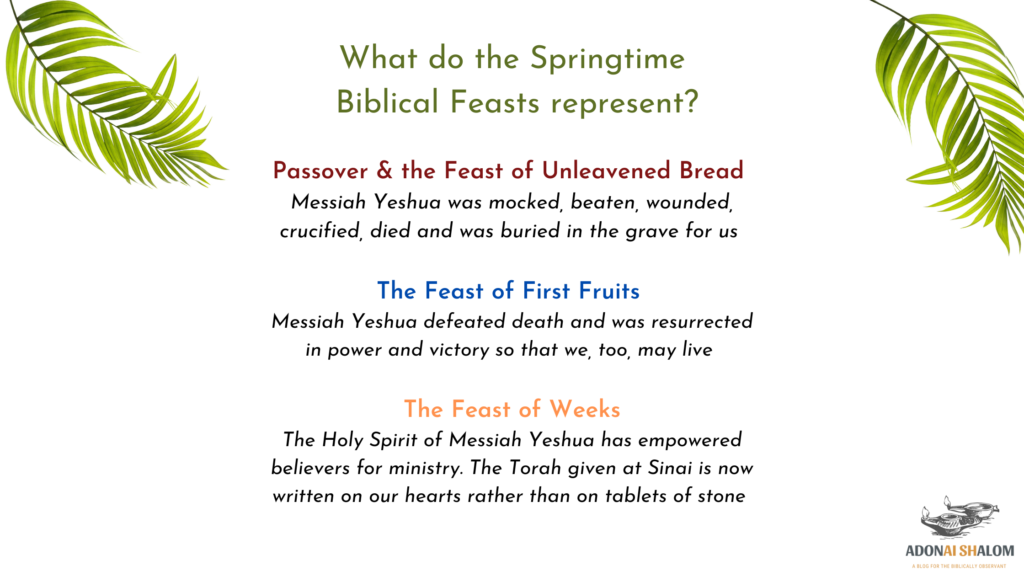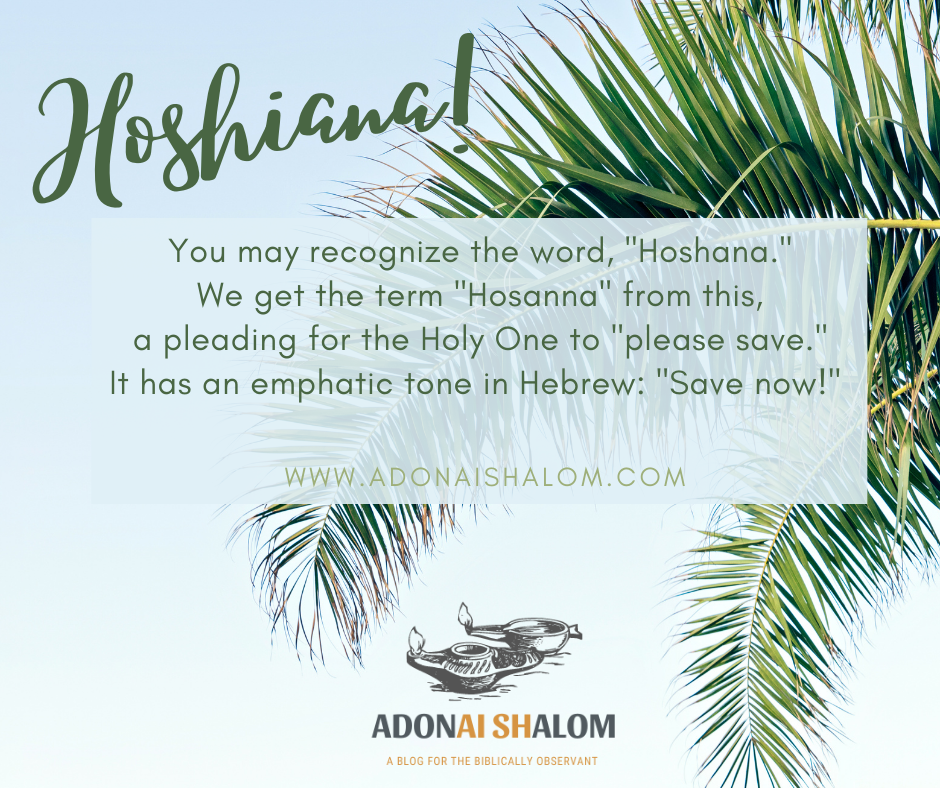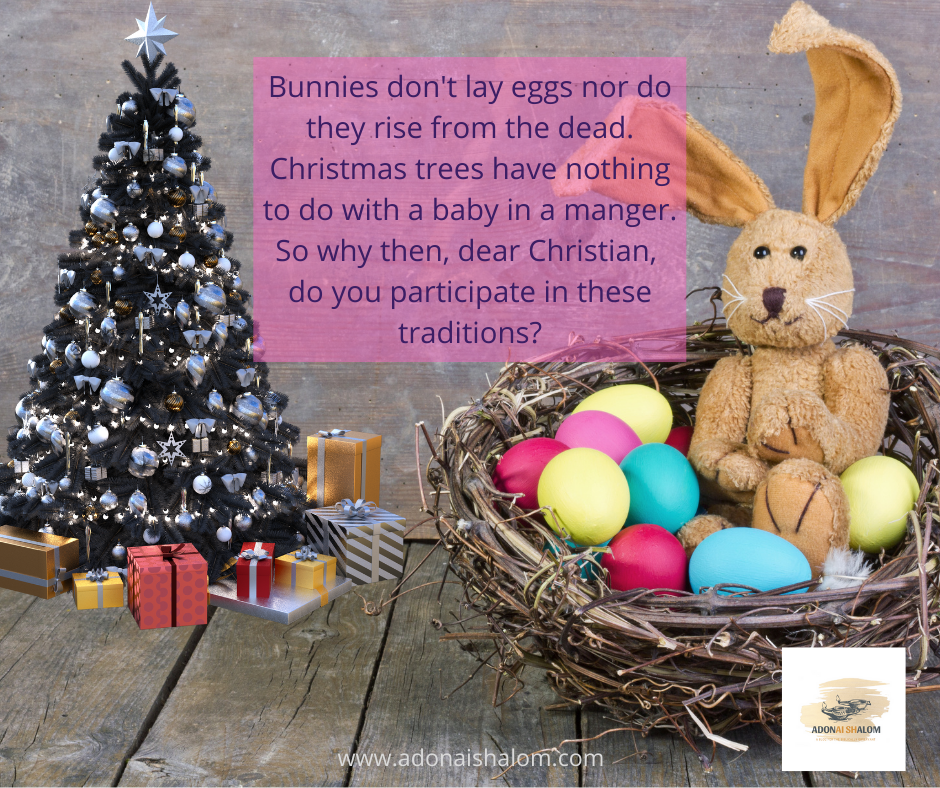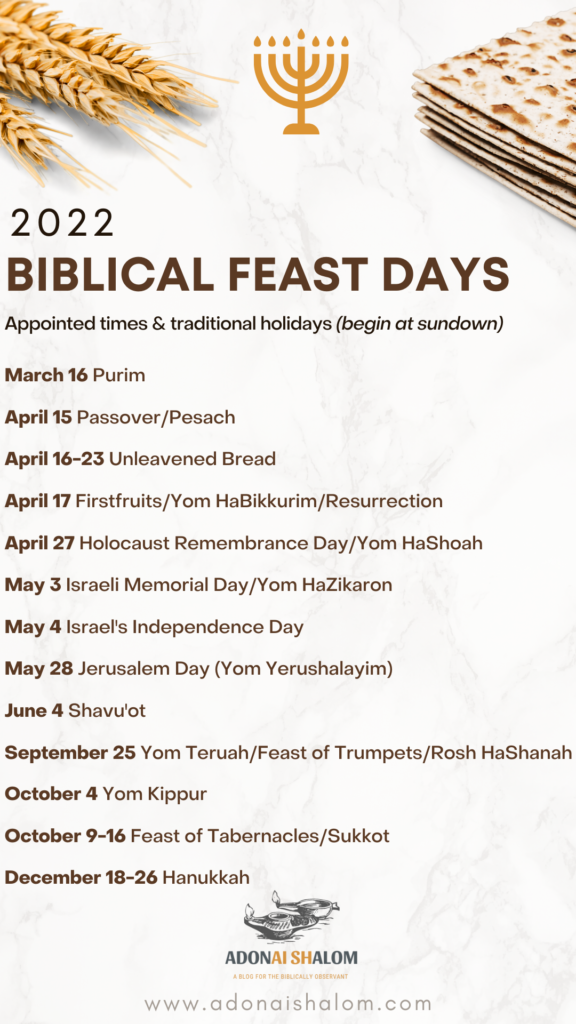The Feast of Tabernacles and Biblical Prophecy
“Sukkot” is the Hebrew term referring to the Feast of Tabernacles (also known as the Feast of Booths in many English Bibles)
Many Christians today do not celebrate the Feast of Tabernacles because they have been taught that it has been done away with. So today, let’s look to the Scriptures to learn more about the Feast of Tabernacles (Sukkot) and realize how relevant it remains today:
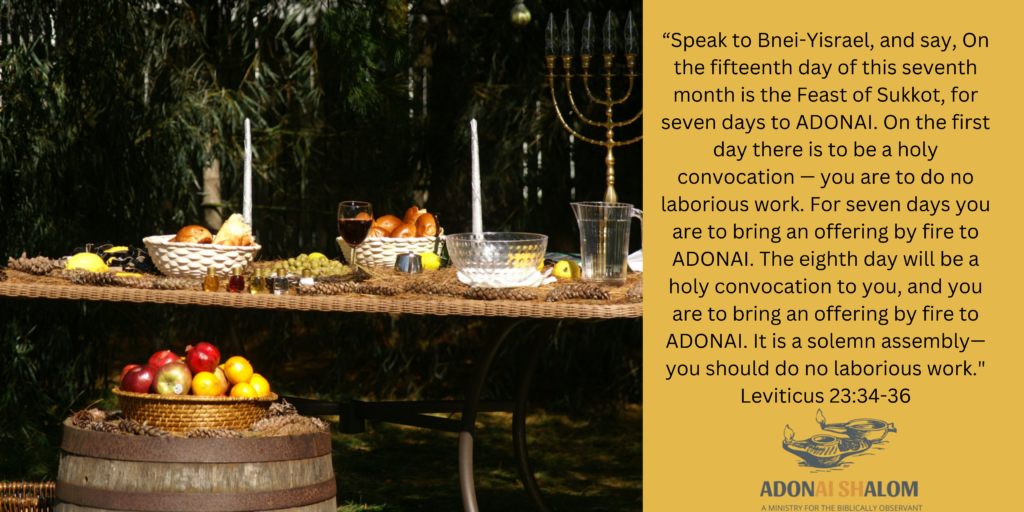
As we continue, I urge you to read your Bible carefully. Trust the Word of God and read to discover His Truth for yourself.
Prophecies from Zechariah, Jeremiah, and Isaiah
The prophet Zechariah foretells what will occur at the Mount of Olives when the LORD returns to rule.
“Echad” means One. The LORD our God, the LORD is One God. He alone will reign as King.
It will be a glorious time!
Now look at Zechariah 14:16:
The nations along with Israel will celebrate Sukkot (The Feast of Tabernacles!) and celebrate our King! The Feast of Tabernacles is also known as Chag HaAsif, which means the “Feast of the Ingathering.” One day, we will all be gathered in the New Jerusalem. This is reason to rejoice!
Sukkot is about Rejoicing
Moshe (Moses) informed the people of the moedim, the “appointed times,” when they were to keep a holy appointment with the LORD. Sukkot is one of the moedim. We have the wonderful opportunity to spend a week in our sukkah (temporary dwellings) to celebrate and to grow closer to the LORD. In His Torah, the LORD specifically commands us to rejoice, or to be joyful, during this time:
“So on the fifteenth day of the seventh month, when you have gathered in the fruits of the land, you are to keep the Feast of ADONAI for seven days. The first day is to be a Shabbat rest, and the eighth day will also be a Shabbat rest. On the first day you are to take choice fruit of trees, branches of palm trees, boughs of leafy trees, and willows of the brook, and rejoice before ADONAI your God for seven days. You are to celebrate it as a festival to ADONAI for seven days in the year. It is a statute forever throughout your generations—you are to celebrate it in the seventh month. You are to live in sukkot for seven days. All the native-born in Israel are to live in sukkot, so that your generations may know that I had Bnei-Yisrael to dwell in sukkot when I brought them out of the land of Egypt. I am ADONAI your God.” Leviticus 23:39-43, emphasis added
When you celebrate the Feast of Tabernacles, you are participating in something Biblical. God-honoring.
Don’t get me started on all these churches that host “trunk-or-treat” and whitewash the devil’s feast of halloween.
If you need something to celebrate this autumn, go with the Feast of Tabernacles and leave the pagans to their paganism.
The Feast of Tabernacles and the Birth of Messiah Yeshua (Jesus)
No one can claim to know the exact date when our Messiah Yeshua (Jesus) was born.
But I can assure you, it is highly unlikely that he was born on December 25.
You have probably heard that December 25th was chosen as “Christmas” because our Savior is the Light of the World, so it was somehow “fitting” to choose the darkest time of the year to celebrate the coming of our Emmanuel.
The problem is, this pattern of thinking conforms to the world and at worst, it is aligned with Constantine and the rule of Rome.
Let us be free of the cult of paganism and false religion.
We need not conform to the pattern of this world!
Let us always look to the Scriptures.
The Bible says the Word became flesh and dwelt – “tabernacled” with us
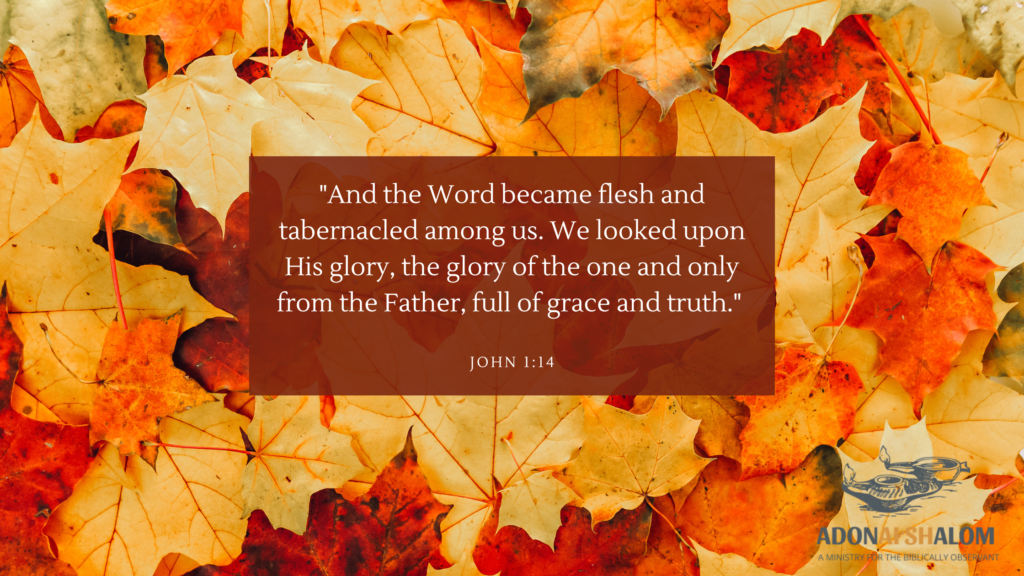
The Word became flesh and dwelt among us. The Greek term “dwelt” more literally means “tabernacled,” hence the translation provided by the Tree of Life Version cited above.
This is an awesome picture of what our Savior came to do!
He left His glorious throne above to meet with us.
As I mentioned earlier, we have sacred appointments – the moedim – and He gave us the Feast of Tabernacles as an experience. That we would realize the magnificence of the fact He meets with us in the most humble of abodes.
You see, perhaps you have never built or even seen a sukkah. A sukkah is sort of like a tent. It is a temporary structure built for this occasion.
No Room in the Inn, but room in a . . . sukkah?
When there was no room at the inn . . . could it be that all of the hotels and motels of Bethlehem were taken because a busy pilgrimage feast . . . known as Sukkot . . . was going on?
Many who study the Hebrew Scriptures believe it very possible that the birth of our Messiah coincided with this pilgrimage feast of Sukkot. The shepherds were in the fields and the sheep in the pastures – it couldn’t have been too terribly cold yet . . . Sorry, closet Constantinians, the first Christmas definitely wasn’t in winter.
I don’t mean to offend anyone since I know Christmas is a beloved tradition for a lot of people.
But I do mean to point out Truth versus modern day tradition.
Could it be that the innkeeper had a sukkah, which provided the extra space available for Miriam and Yosef (Mary and Joseph)?
Our Messiah, our Prince of Peace, was born in the most humble of places. If you build a sukkah, you will see it fits that description.
A humble dwelling place.
Need more evidence?
The Hebrew word, sukkah, is translated as “stable” (Genesis 33:17).
Celebrate the Incarnation of our Messiah this Sukkot
Our wonderful Messiah, Yeshua (Jesus) our LORD came to earth in a manner that demonstrated humility and the veracity of the Word. He never has contradicted His Word, and He never will.
On the contrary, the Word proves True every time, against any test.
This Sukkot, realize this amazing Truth. We currently dwell in temporary tabernacles of flesh, but one day, we will put on the eternal resurrected tabernacle because our bodies are the temple of the Holy Spirit (Ruach haKodesh) and He will raise us up incorruptible.
My husband is an immigrant to the United States and didn’t really grow up with Christmas carols. So he is fascinated by our culture in that by the end of November every radio station is playing Christmas songs. He loves the fact that the secular stations even play songs that honor our Savior.
So he wishes that they played these songs all year!
He doesn’t just want Christmas in July, this man would love to play Christmas songs on our stereo all year if I let him.
Do you love those beautiful songs, too?
Well, no need to wait any longer. Get out your Joy to the World playlist because the LORD has come, and will return! Let heaven and nature sing!!
He has come to tabernacle with you, my friend.
O Come, All Ye Faithful
Enjoy the feast, and invite your friends.
Perhaps someone will come to a saving relationship with Yeshua (Jesus) because of your faithful witness.
It was during the Feast of Tabernacles when Messiah Yeshua (Jesus Christ) revealed Himself as the Living Water. If you’d like to study that topic, more in-depth, I invite you to check out my post on the Living Water at the Feast of Tabernacles: Exploring John 7.
Speaking of Living Water, notice that an offering by fire had been required during Sukkot. Now, the Holy Spirit fills those who call upon His Name with Living Water and the Fire of Pentecost. Let your life be that offering to Him, on fire for your Savior, and filled with the precious Holy Ghost. Chag Sameach Sukkot!
Are you celebrating the Feast of Tabernacles this year? We pray you have a wonderful time with your family and friends, celebrating the coming of Emmanuel, the One who gives us Living Water!
